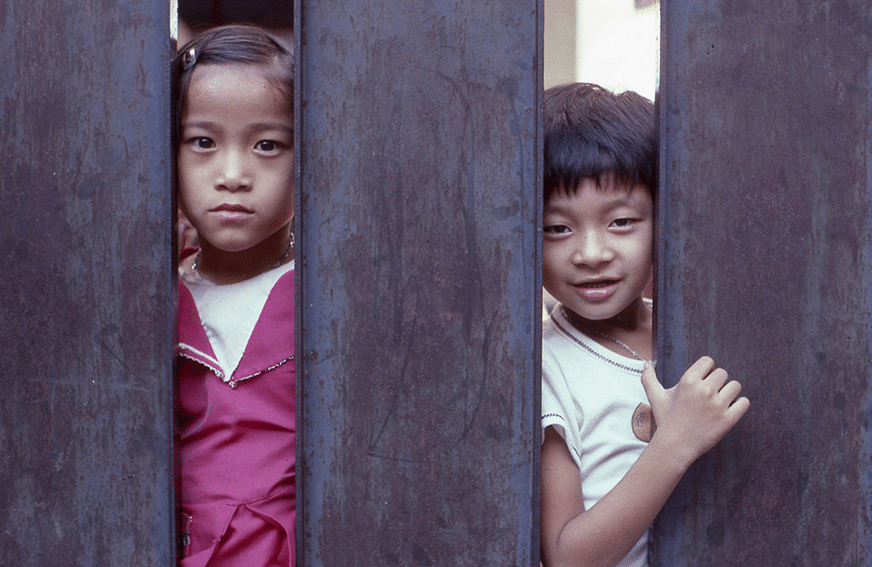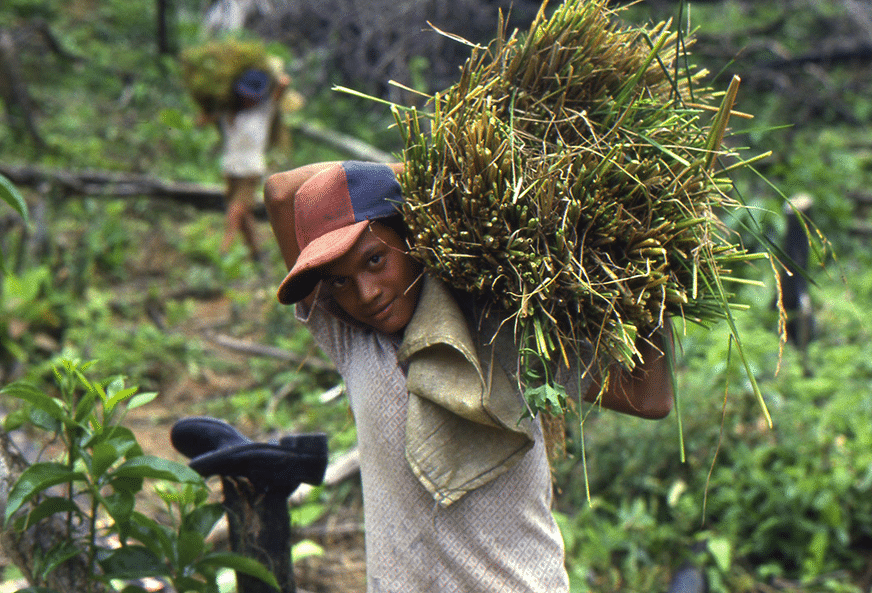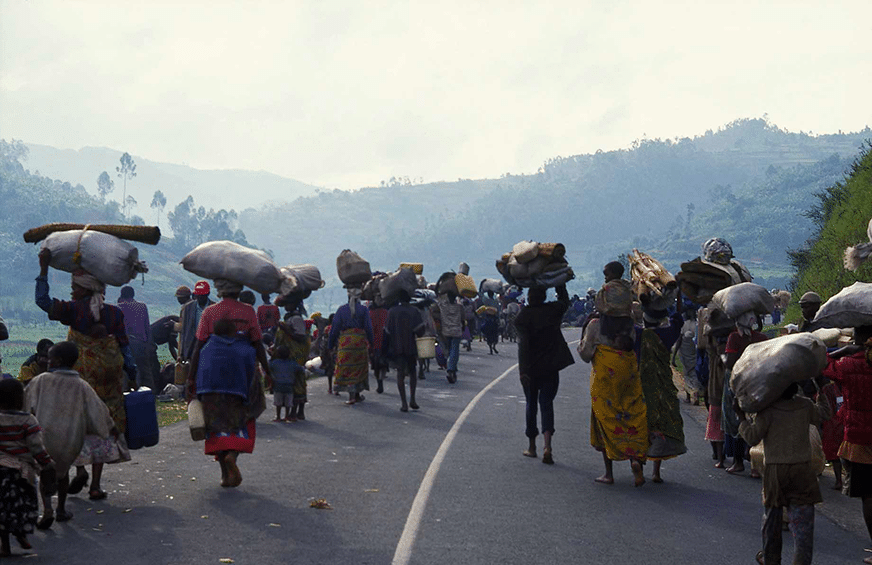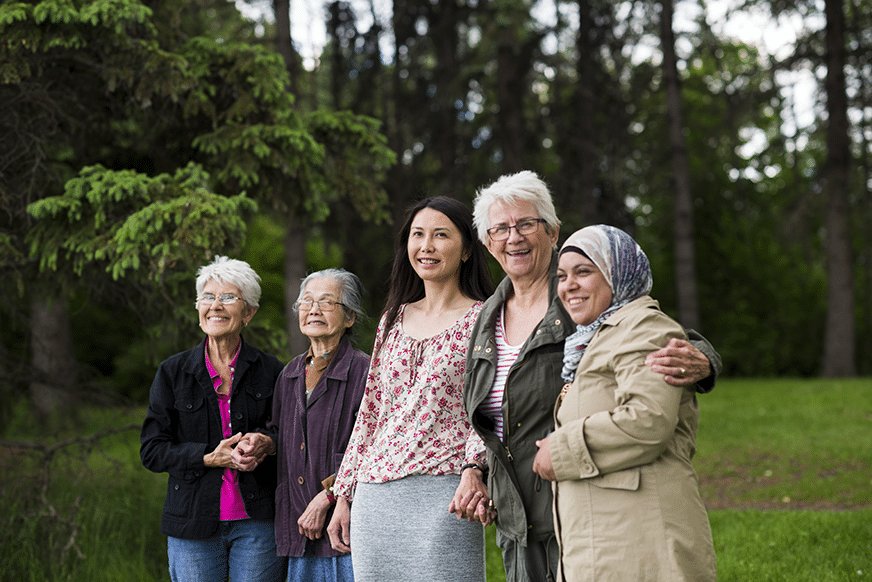
1979. Transit centre for Indochinese refugees in Bangkok, Thailand. © UNHCR/Jim Becket
OTTAWA, CANADA, 14 DECEMBER 2020 – Today marks the 70th anniversary since UNHCR, the UN Refugee Agency, was given its mandate by the UN General Assembly to protect people forced to flee persecution, provide humanitarian assistance and work to find solutions for millions of refugees around the world.
“For more than 70 years, our actions have saved lives and offered hope to those who have been forced to flee their homes because of violence, conflict and persecution,” said Rema Jamous Imseis, UNHCR’s Representative in Canada.
“With over 80 million forcibly displaced persons around the world today, this anniversary is no cause for celebration. Rather, it is a reminder that we must redouble our efforts to tackle the root causes of displacement. If the factors driving mass displacement were resolved in just half a dozen countries, millions of refugees could go home, as could millions more internally displaced people.”

1982. Salvadorian refugee in the Ciudad Romero camp in Panama. © UNHCR/M. Meton
“This has been a particularly tough year for refugees. COVID-19’s impact on the already precarious existence of displaced persons and on the communities that welcome them has been devastating. And despite a global call for peace as the world began to battle the pandemic in March, we have seen conflicts continue.”
The UN Refugee Agency’s most recent trends report showed that situations in Syria, the Democratic Republic of the Congo, Venezuela and Yemen continued to drive displacement in the first half of 2020. In Africa’s Central Sahel region massive security problems caused by armed groups prevailed and thousands of women have been victims of sexual violence.
Since 14 December 1950, the UN Refugee Agency has been at the forefront of the global humanitarian response to those whose lives have been uprooted by conflict and persecution. It has been awarded the Nobel Peace Prize twice and has 17,000 staff working in 135 countries.

1996. Returnees from Zaire on Gisenyi-Ruhengeri Road in Rwanda. © UNHCR/Roger LeMoyne
“With all the difficulties we have faced in 2020, there is hope on the horizon for 2021,” said Jamous Imseis. “COVID-19 has also shown us countless examples of human solidarity and generosity. In Canada and globally, we have seen countless refugees and asylum-seekers put their own lives on the line to work on the front lines of COVID-19 in their communities.”
“Throughout our 70 years, Canada has provided strong and steadfast support for the work that the UN Refugee Agency have been doing around the world. Despite the difficulties of COVID-19, we have also seen continued generosity from Canada – and Canadians – in welcoming and supporting refugees in our communities. This is something truly worth celebrating.”

2017. Refugees and their sponsors spending time at a park in Edmonton, Alberta. Pictured are: Leona Heuver, Vietnamese refugee; Huong Tran, Vietnamese refugee; Dr Nhung Tran-Davies; Vicky Baril; Somaya Alchabli, Syrian refugee. © UNHCR/Jimmy Jeong
To mark the occasion, UNHCR Canada is offering a window into the worlds – and kitchens – of refugees who now call Canada home, with the release of a free e-cookbook, Tastes from Home: Recipes from the Refugee Community. The cookbook invites readers to experience the food that has special meaning and memory for 14 former refugees who have resettled to Canada, including Hon. Ahmed Hussen, federal Minister of Families, Children and Social Development, and former Governor General the Right Hon. Adrienne Clarkson. Download UNHCR Canada’s cookbook at unhcr.ca/cookbook.
UNHCR Canada is also participating in the One World Refugee Film Festival. On 14 December 2020, a special 70th anniversary program featuring Representative Rema Jamous Imseis and Polish-Canadian filmmaker Jonathan Durand, and hosted by Jim Creskey, founder and publisher of The Hill Times, will be livestreamed at 20:00 EST. Find more information about the One World Refugee Film Festival at owrff2020.eventive.org.
Note to Editors
- More than 80 million people are displaced due to conflict, persecution, violence or human rights violations.
- Global displacement has doubled since 2010 (41 million people displaced).
- Developing countries host 85 per cent of the world’s displaced and 73 per cent lived in countries neighbouring their country of origin.
- More than 2/3 of the world’s refugees, or 68 per cent, are from five countries: Syria, Venezuela, Afghanistan, South Sudan and Myanmar.
- Approximately 46 million of internally displaced persons made up the bulk of the world’s displaced population; many have been displaced multiple times.
- An estimated 30–34 million – 40 per cent of all forcibly displaced persons – are under 18 years of age.
For more information and interview requests:
In Ottawa, Gisele Nyembwe, Tel. +1 613-986-430, nyembwe@unhcr.org


